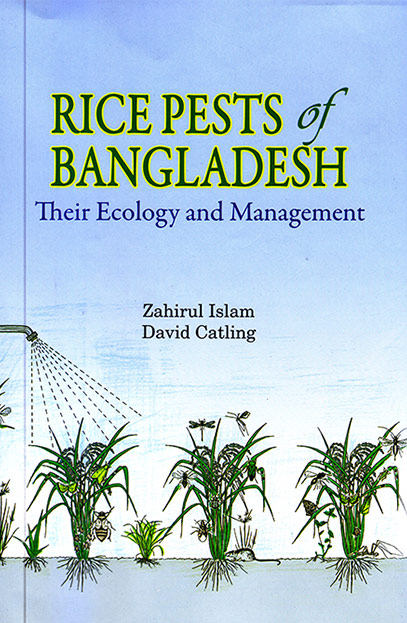- Shop
- Social Sciences
- Rice Pests of Bangladesh: Their Ecology and Management
Rice Pests of Bangladesh: Their Ecology and Management
https://uplbooks.com/shop/9789845060486-rice-pests-of-bangladesh-their-ecology-and-management-8335 https://uplbooks.com/web/image/product.template/8335/image_1920?unique=56f7a2e
| Language: English |
Tags :
Book Info
Rice is the staple food crop of Bangladesh. During the last four decades rice production has been transformed from a low input, traditional system to an intensive, high-yielding system relying on high inputs, which has strongly influenced the incidence and abundance of rice pests. At the same time and during the same period, great strides were made in our understanding of the ecology of pests and therefore their management. We moved from a dependence on pesticides to an ecological approach based on the principles of integrated pest management (IPM). However, this radical change in strategy, so vital for pest management research, education and extension, has never before been compiled in a single volume for Bangladesh. In a nutshell the book: • emphasizes IPM in place of a purely chemical approach; • incorporates research efforts of the last 30-40 years; • represents a single source for all rice pests: insects, vertebrates, and diseases weeds; • applies specifically to Bangladesh and neighboring eastern India; • analyses yield losses caused by major insect pests; • critically analyzes ways and means of implementing IPM. The book is clearly laid out and profusely illustrated. It is an essential read for students, teachers, researchers, and all extension and agricultural development workers.

David Catling
David Catling has a Diploma of Agriculture and BSc from Stellenbosch University, and MSc and Ph.D degrees from Potchefstroom University, South Africa. He started out as a farmer, then became a field assistant before qualifying as an entomologist. His first research was on citrus pests in South Africa and Swaziland, where he introduced an integrated pest management system for citrus farmers. In 1972, he was appointed by FAO to introduce the concept of integrated pest management (IPM) into South Korea’s Department of Agriculture. In 1974, he became the IRRI Team Leader/Entomologist working closely with BRRI, and went on to lead BRRI’s research project on deepwater rice, thus staying in Bangladesh for seven years. During this period his main interest was

Zahirul Islam
Zahirul Islam has a BSc Agriculture degree from the Bangladesh Agriculture Institute, Dhaka; and MSc and Ph.D degrees from Imperial College, University of London. He worked briefly for the Mennonite Central Committee and the Bangladesh Agricultural Development Corporation. His career as an entomologist started in 1977 when he joined the Bangladesh Rice Research Institute (BRRI) and began working with David Catling on the Deepwater Rice Pest Management Project. He worked for BRRI for 24 years and then spent six years at the International Rice Research Institute (IRRI). At IRRI, he developed an IPM training course which was later offered in eight Asian countries. Upon his return to Bangladesh, he served on its Agriculture Commission and taught insect ecology at Bangabandhu



